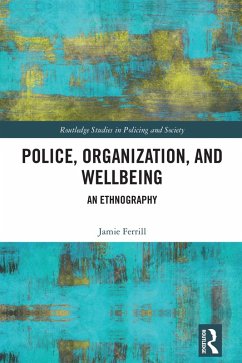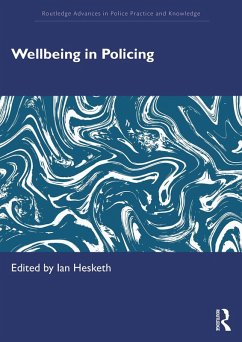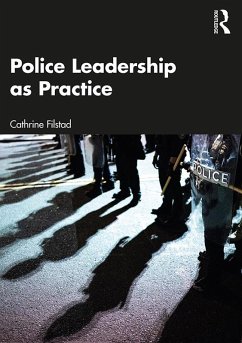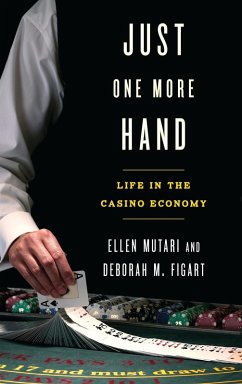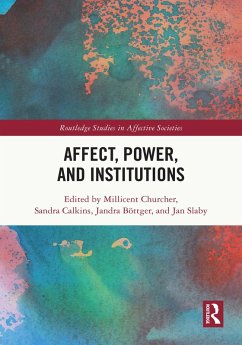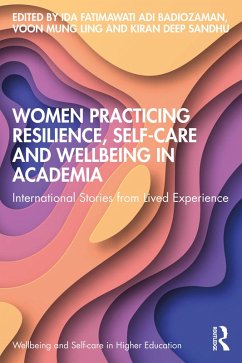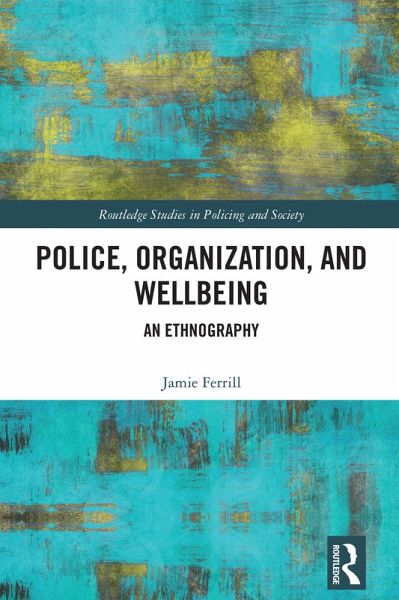
Police, Organization, and Wellbeing (eBook, PDF)
An Ethnography
Versandkostenfrei!
Sofort per Download lieferbar
39,95 €
inkl. MwSt.
Weitere Ausgaben:

PAYBACK Punkte
20 °P sammeln!
Based on the study of a police organization in England, this book explores the role of social relations in the ways that people construct, mobilize, consume, and reconstruct meaning about wellbeing. Wellbeing is a powerful, institutionalized concept in police organizations across England and Wales. With the emergence of numerous policies, strategies, and practices that both explicitly and implicitly address wellbeing in the workplace, the concept has come to feature prominently. Wellbeing is addressed as an issue that needs to be understood intersubjectively by attending to the underlying soci...
Based on the study of a police organization in England, this book explores the role of social relations in the ways that people construct, mobilize, consume, and reconstruct meaning about wellbeing. Wellbeing is a powerful, institutionalized concept in police organizations across England and Wales. With the emergence of numerous policies, strategies, and practices that both explicitly and implicitly address wellbeing in the workplace, the concept has come to feature prominently. Wellbeing is addressed as an issue that needs to be understood intersubjectively by attending to the underlying social issues that shape how it is promoted or denied.
After a theoretical exploration of police culture and wellbeing, the book traverses ethnographic data and captures insights from individuals across the organization's hierarchy. It explores what individuals perceive wellbeing to mean and how they make sense of the concept. The book reveals discernible ideological-laden tensions across the hierarchy in terms of wellbeing constructions. By exploring these tensions, there is a potential to understand the constructions of wellbeing and the resultant implications for practice.
This book will be of interest to academics, researchers, and students in policing, criminology, criminal justice, leadership/management, organizational behaviour, and wellbeing. Given its empirical focus and applicability to practitioners, it will also be of interest to a range of non-academics, including police officers and leaders, public servants, private organizations, policymakers, and human resources professionals.
After a theoretical exploration of police culture and wellbeing, the book traverses ethnographic data and captures insights from individuals across the organization's hierarchy. It explores what individuals perceive wellbeing to mean and how they make sense of the concept. The book reveals discernible ideological-laden tensions across the hierarchy in terms of wellbeing constructions. By exploring these tensions, there is a potential to understand the constructions of wellbeing and the resultant implications for practice.
This book will be of interest to academics, researchers, and students in policing, criminology, criminal justice, leadership/management, organizational behaviour, and wellbeing. Given its empirical focus and applicability to practitioners, it will also be of interest to a range of non-academics, including police officers and leaders, public servants, private organizations, policymakers, and human resources professionals.
Dieser Download kann aus rechtlichen Gründen nur mit Rechnungsadresse in A, B, BG, CY, CZ, D, DK, EW, E, FIN, F, GR, HR, H, IRL, I, LT, L, LR, M, NL, PL, P, R, S, SLO, SK ausgeliefert werden.




